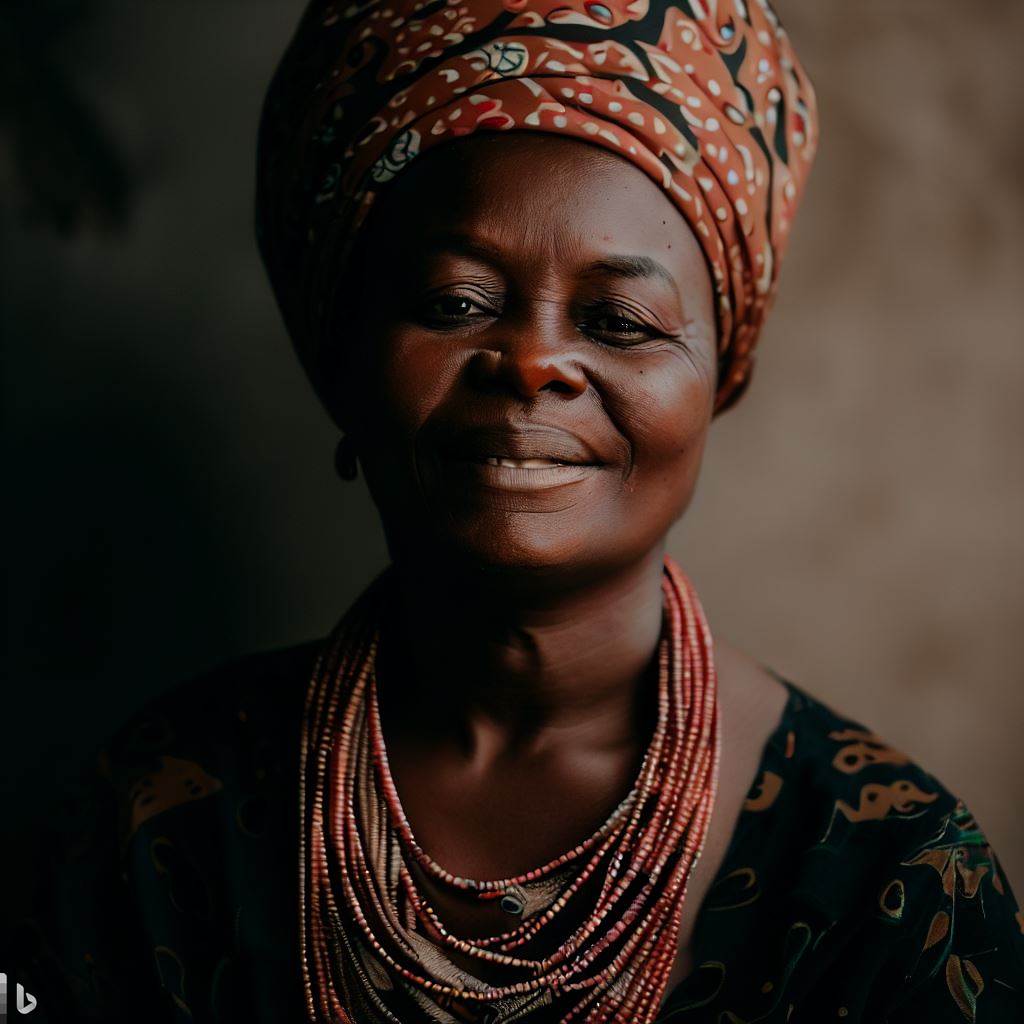Introduction
A. Digital Photography in Nigeria: A Glimpse
Digital photography revolutionized image creation and sharing. In Nigeria, this trend has gained exceptional momentum.
B. Significance of Digital Photography in Nigeria
- Visual Storytelling: Captures culture, diversity, and daily life, preserving Nigerian heritage through images.
- Business Boost: E-commerce, advertising, and social media thrive on captivating visuals.
- Youth Engagement: Empowers young Nigerians to express themselves creatively and voice concerns.
- Tourism Promotion: Stunning photographs attract tourists, boosting the economy and showcasing Nigeria’s beauty.
- Cultural Preservation: Documents traditional practices and ceremonies, safeguarding them for future generations.
- Educational Tool: Enhances learning through visual aids, making education more engaging and effective.
- Professional Growth: Fosters a burgeoning photography industry, providing job opportunities and entrepreneurship avenues.
- Social Impact: Raises awareness about societal issues, acting as a catalyst for change.
The following sections delve deeper into the trends, tools, and techniques driving digital photography in Nigeria.
Popular Trends in Digital Photography in Nigeria
In recent years, Nigeria has witnessed a dynamic transformation in the realm of digital photography.
This section explores the most prominent trends shaping the photographic landscape in the country.
A. Rise of smartphone photography
Smartphones have become ubiquitous in Nigeria, thanks to their increased accessibility and affordability.
This trend has had a profound impact on the photography culture within the nation.
1. Smartphone Accessibility
The widespread availability of smartphones has made photography a part of everyday life.
Virtually everyone now carries a camera in their pocket, enabling them to capture moments, express themselves artistically, and document their surroundings effortlessly.
This democratization of photography has empowered Nigerians to become more visually creative.
2. Cultural Impact
This accessibility has revolutionized photography culture, making everyone a potential photographer.
Smartphones have also fostered a sense of immediacy in photography.
People can instantly share their images on social media, sparking trends and movements in real-time.
This phenomenon has significantly altered the way Nigerians perceive and engage with photography.
B. Growth of social media photography
1. Instagram and Facebook
Platforms like Instagram and Facebook have become significant for showcasing Nigerian photography talent.
Social media platforms, particularly Instagram and Facebook, have played a pivotal role in propelling Nigerian photography onto the global stage.
These platforms serve as virtual galleries where photographers can showcase their work to a massive and diverse audience.
2. Creative Showcase
These platforms offer Nigerian photographers a global stage to display their creativity.
Photographers in Nigeria are leveraging the power of social media to exhibit their unique perspectives and narratives.
This has not only created a vibrant photography community but also provided a platform for talented Nigerians to gain recognition internationally.
C. Emergence of drone photography
1. Drone Technology
Advancements in drone technology have made aerial photography more accessible.
Advancements in drone technology have opened up exciting possibilities for photographers in Nigeria.
Drones equipped with high-resolution cameras are being used to capture breathtaking aerial images and videos.
2. Diverse Applications
Drone photography is used across industries from agriculture to real estate in Nigeria.
The applications of drone photography are diverse.
In agriculture, drones are used for crop monitoring, improving yields.
In real estate, they offer stunning aerial views of properties.
Additionally, they are employed in environmental monitoring and even in the film and entertainment industry for stunning aerial sequences.
In a nutshell, the digital photography landscape in Nigeria is undergoing a remarkable transformation.
The rise of smartphone photography, the growth of social media as a platform for showcasing talent, and the emergence of drone photography are some of the prominent trends shaping this evolution.
These trends not only reflect the creative spirit of Nigerians but also offer exciting opportunities for photographers to thrive in this dynamic era of visual storytelling.
Read: Photography Equipment: A Buying Guide for Nigerian Photographers
Tools and Equipment for Digital Photography in Nigeria
Digital photography has gained significant popularity in Nigeria over the past decade, with a growing number of photographers exploring this medium.
To capture stunning images, photographers require various tools and equipment.
In this section, we will discuss the essential tools and equipment needed for digital photography in Nigeria.
A. Digital cameras
Digital cameras are the most critical equipment for digital photography. They come in different types, each with its unique features.
The choice of camera depends on the photographer’s specific needs and preferences. Some popular types of digital cameras include DSLRs, mirrorless cameras, and compact cameras.
DSLR cameras are widely used by Nigerian photographers due to their versatility and image quality.
They offer manual settings, interchangeable lenses, and excellent low-light performance.
Mirrorless cameras are gaining popularity as well, offering similar features to DSLRs but in a more compact form.
Compact cameras are smaller and easier to carry, making them convenient for everyday photography.
Several camera brands are preferred among Nigerian photographers. Canon and Nikon are well-known brands for their extensive range of cameras and lenses.
Sony, Fujifilm, and Olympus also offer excellent options for different types of photography.
B. Lenses and filters
Lenses play a crucial role in digital photography, allowing photographers to capture different types of shots effectively.
The right lens selection depends on the specific photography genre and desired effect.
Wide-angle lenses are ideal for landscapes and architectural photography, while telephoto lenses are suitable for wildlife and sports photography.
Nigerian photographers have access to popular lens and filter options.
Canon and Nikon offer a variety of lenses, from kit lenses to professional-grade options.
Tamron and Sigma are also popular lens manufacturers, providing affordable alternatives with great image quality.
Filters, such as UV filters, polarizers, and neutral density filters, are essential accessories that enhance image quality and creativity.
C. Photography accessories
In addition to cameras and lenses, various accessories are necessary for digital photography.
Tripods provide stability and are useful for long-exposure shots and self-portraits. Camera bags are essential for protecting and carrying camera gear during outdoor shoots.
Lighting equipment, such as external flashes and continuous lights, enhance image quality in low-light conditions and studio setups.
Photographers in Nigeria can find photography equipment in dedicated camera stores and online platforms.
Popular camera stores like Yudala, Jumia, and Slot offer a wide range of cameras, lenses, and accessories.
Online marketplaces like Konga and Jiji also provide options to purchase photography equipment at competitive prices.
Therefore, having the right tools and equipment is essential for digital photography in Nigeria.
Digital cameras, lenses, and accessories, along with proper knowledge and skills, can elevate photographers’ work and produce remarkable images.
Nigerian photographers have access to a variety of options, ensuring they can find the equipment that suits their needs and budget.
Read: Photography Schools in Nigeria: Where Talent Meets Technique

Techniques and Tips for Better Digital Photography in Nigeria
Photography in Nigeria has evolved significantly with the advent of digital technology.
Whether you’re an amateur photographer capturing beautiful landscapes or an aspiring professional building a career in the industry, mastering essential techniques can greatly enhance the quality of your digital photographs.
In this section, we will explore some techniques and tips that can help improve your digital photography skills in Nigeria.
A. Composition and framing
Composition is a fundamental aspect of photography that greatly impacts the visual appeal of an image.
The rule of thirds is a popular composition guideline that involves dividing the frame into thirds horizontally and vertically, creating four intersecting points.
Placing key elements of your photograph along these points can create a more visually balanced and pleasing composition.
Additionally, experiment with capturing unique and engaging perspectives to add depth and creativity to your photographs.
Instead of photographing a subject from eye level, try crouching down, shooting from a high vantage point, or using unconventional angles to create a more visually interesting image.
B. Lighting and exposure
Lighting plays a crucial role in photography, as it sets the mood and can greatly enhance the overall look of your images.
Whether shooting outdoors or indoors, understanding how to effectively use natural and artificial light is essential.
Experiment with different lighting conditions and learn to adapt your exposure settings accordingly.
Balancing exposure is also key to creating well-exposed images.
Overexposure occurs when too much light enters the camera, resulting in washed-out highlights, while underexposure leads to dark and shadowy images.
Adjusting your camera settings, such as aperture, shutter speed, and ISO, can help maintain the desired exposure levels.
C. Editing and post-processing
While capturing a great photograph is important, post-processing can further enhance and refine your images.
Familiarize yourself with popular editing software and mobile apps that allow you to make adjustments to brightness, contrast, color saturation, and more.
However, it is crucial to maintain the authenticity of your photographs during the editing process.
Avoid excessive edits that may alter the original scene beyond recognition.
Use editing tools to enhance your images while preserving their natural beauty and visual integrity.
In general, by employing proper composition techniques, utilizing lighting effectively, and mastering editing and post-processing, you can elevate your digital photography skills in Nigeria.
Practice these techniques and experiment with different tools and perspectives to capture captivating and visually stunning images.
With dedication and continuous learning, you can become a skilled digital photographer capable of telling diverse and captivating visual stories.
Read: Nigerian Wedding Photography: A Beautiful and Lucrative Niche
You Might Also Like: Behind the Scenes: Day in the Life of a Nigerian Costume Designer
Promoting and Showcasing Nigerian Digital Photography
Nowadays, promotion and showcasing of Nigerian digital photography have become essential for photographers to gain recognition and expand their reach.
With the rise of social media and online platforms, it has become easier than ever to showcase their work and connect with a wider audience.
This section explores some effective methods for promoting and showcasing Nigerian digital photography.
A. Utilizing social media platforms
Building an online presence is crucial in today’s digital age.
Publish Your Professional Profile, Business or Brand
Showcase your expertise, gain trust, and boost visibility instantly on Professions.ng.
Publish NowPhotographers should create profiles on popular social media platforms, such as Instagram, Facebook, Twitter, and Pinterest, to showcase their work.
Regularly updating these platforms with high-quality images and engaging captions can help attract a following and gain exposure.
Engaging with photography communities and fellow photographers is also essential.
Joining photography groups, participating in discussions, sharing tips and techniques, and providing constructive feedback to others can help build connections in the photography community.
Collaborating with fellow photographers on joint projects or featuring each other’s work can also lead to mutual growth and increased exposure.
B. Participating in local exhibitions and competitions
Showcasing work within Nigeria provides an opportunity to connect with the local audience.
Participating in local exhibitions and competitions allows photographers to display their work and receive feedback directly from viewers.
It presents a chance to interact with art enthusiasts, potential clients, and industry professionals who can provide valuable insights and networking opportunities.
Collaborating with other artists and photographers can also be beneficial.
These partnerships can lead to joint exhibitions, where multiple artists can showcase their work together, attracting a larger audience.
Collaborations foster creativity, inspire new ideas, and provide opportunities for cross-promotion.
C. Exploring commercial opportunities
Photographers can explore various commercial avenues to monetize their work and further promote their brand.
Freelancing and selling prints are popular options, where photographers can offer their services for events, portraits, or commercial projects.
They can also sell prints of their best work to individuals and organizations interested in owning unique and authentic pieces of Nigerian digital photography.
Collaborating with brands and businesses is another effective way to gain exposure and commercial opportunities.
Photographers can partner with local brands for advertising campaigns, product shoots, or social media content.
This not only provides a source of income but also expands the photographer’s reach to a wider audience through brand collaborations and endorsements.
In summary, promoting and showcasing Nigerian digital photography requires a multi-faceted approach.
Utilizing social media platforms, engaging with photography communities, participating in local exhibitions, collaborating with other artists, exploring commercial opportunities like freelancing and brand collaborations are all essential methods.
By combining these strategies, photographers can increase their visibility, gain recognition, and establish themselves in the Nigerian digital photography scene.
Read: Challenges and Opportunities in Nigeria’s Photography Industry
Conclusion
A. Recap of the significance and growth of digital photography in Nigeria
Over the years, digital photography has witnessed significant growth and has become increasingly popular in Nigeria.
The advent of digital cameras, smartphones, and social media platforms has facilitated this growth.
This shift from traditional film photography to digital has brought about numerous advantages.
It has made photography more accessible and affordable for Nigerians, allowing them to capture and share their moments with ease.
B. Encouragement to explore and embrace digital photography in the Nigerian context
With the increasing availability of photography tools and techniques, Nigerians should embrace digital photography as a means of self-expression, storytelling, and empowerment.
There is immense potential for both enthusiasts and professionals to create visually compelling and impactful images.
Digital photography can also serve as a source of income in areas such as fashion, events, and advertising.
Additionally, digital photography can be a powerful tool for cultural preservation and documentation, capturing the rich diversity and heritage of Nigeria.
By exploring and embracing digital photography, Nigerians can not only showcase their creativity and talent but also contribute to the growth of the photography industry in the country.
Digital photography has created a new era of visual storytelling in Nigeria.
As technology continues to advance, it is essential for Nigerians to adapt and seize the opportunities offered by digital photography.




